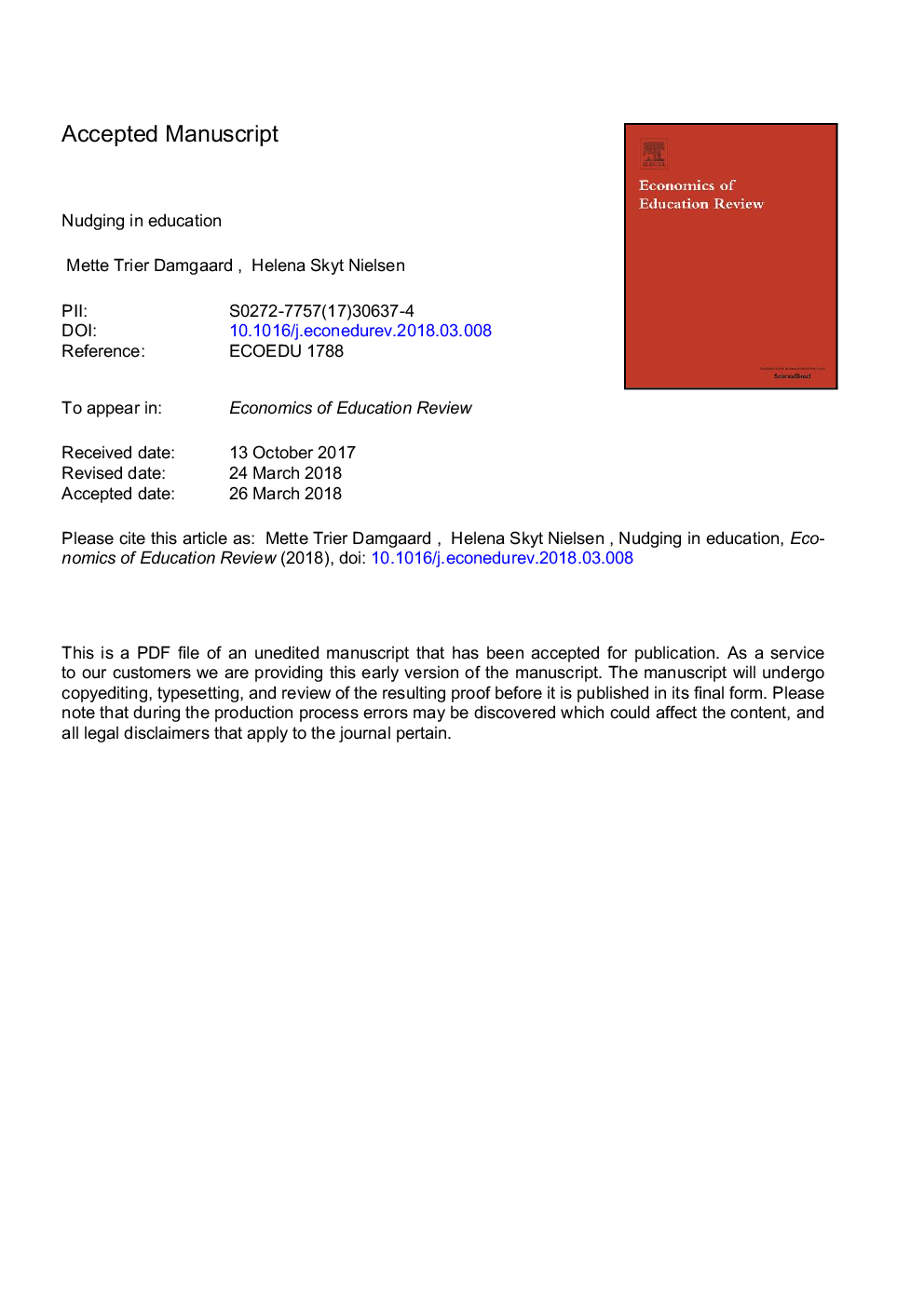| Article ID | Journal | Published Year | Pages | File Type |
|---|---|---|---|---|
| 6840788 | Economics of Education Review | 2018 | 62 Pages |
Abstract
Can we nudge children, adolescents and their parents to make better decisions on education? And can we nudge teachers to support and encourage better decision making? Education decisions are taken at young ages and involve immediate costs and potential, future benefits. In such settings behavioural barriers (e.g. lack of self-control, limited attention and social norms) likely influence choices and this may motivate the use of low cost 'nudges' to gently push behaviour in the desired direction. Our review of nudging interventions shows that while nudging often has positive effects, the greatest effects often arise for individuals affected most by the behavioural barrier targeted by the intervention. Hence understanding underlying behavioural mechanisms is crucial. Negative effects may arise in situations where nudges potentially crowd-out intrinsic motivation, if nudges pressurise individuals, or in situations where the choice architect has an insufficient understanding of behavioural mechanisms.
Keywords
Related Topics
Social Sciences and Humanities
Economics, Econometrics and Finance
Economics and Econometrics
Authors
Mette Trier Damgaard, Helena Skyt Nielsen,
